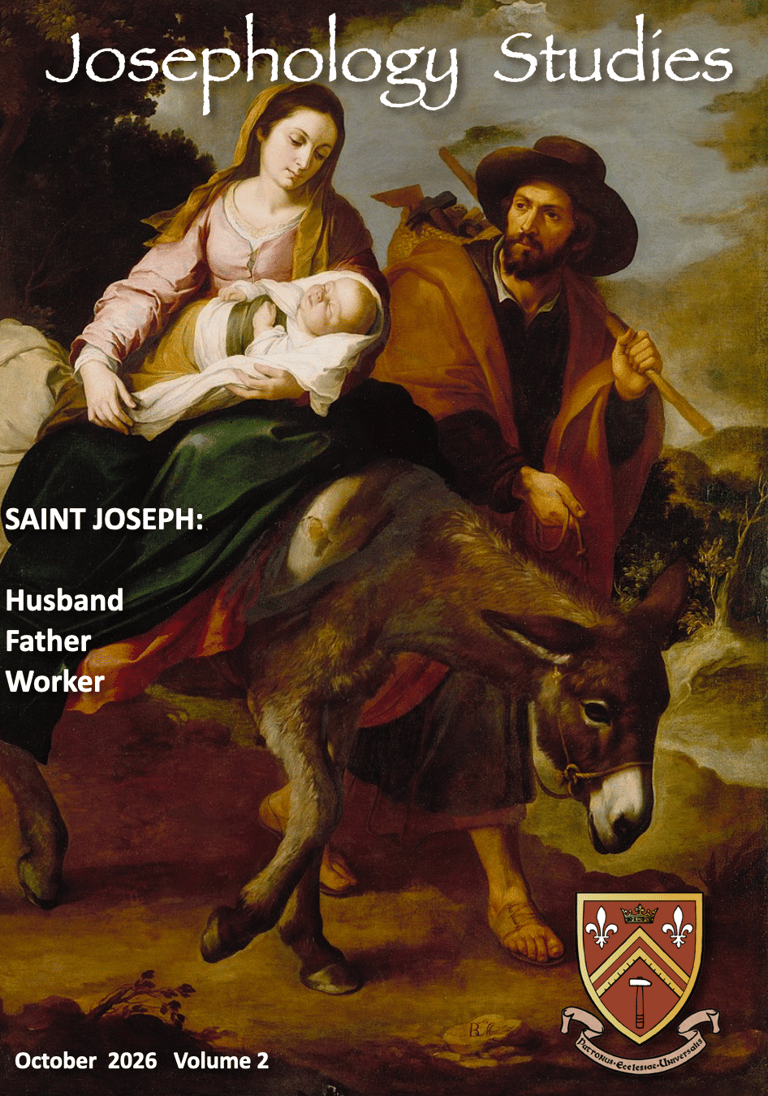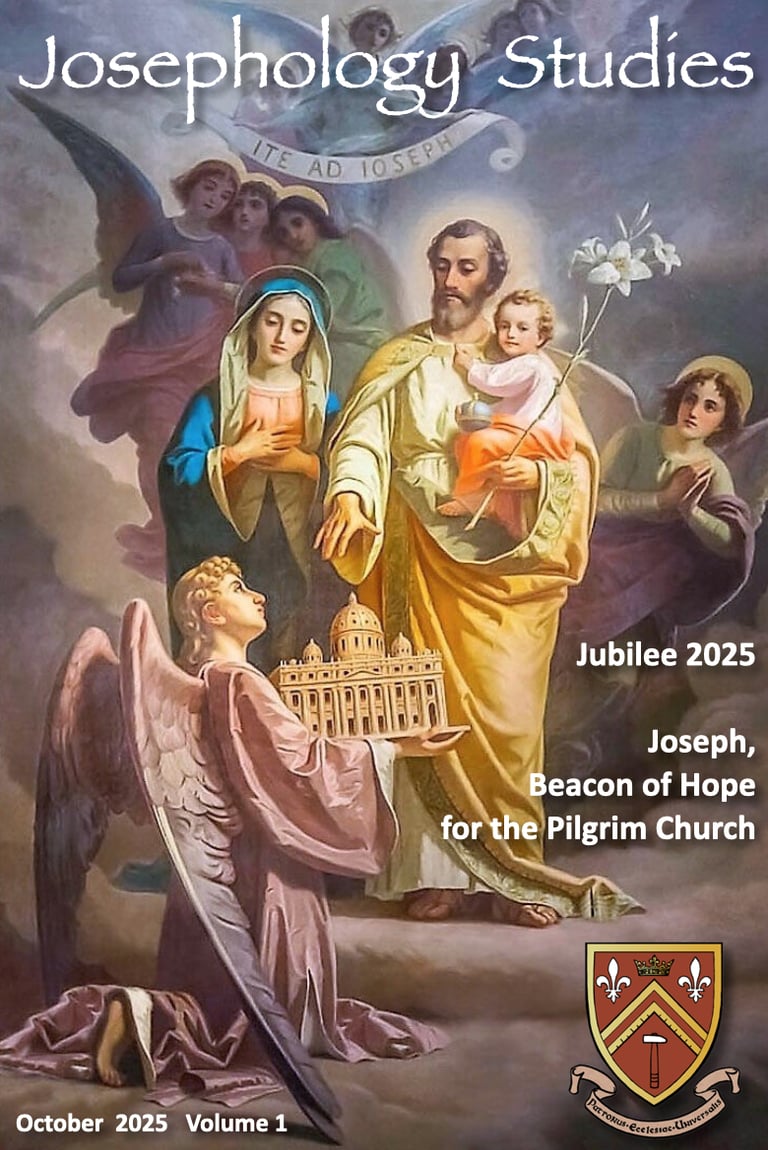JSI will soon launch Josephology Studies, a peer-reviewed, scholarly journal. We welcome contributions from all topics in Josephology, especially St Joseph in Scripture, the early Church Fathers, the liturgy, the magisterium, devotional piety, as well as reviews on new books, movies, art, and music.
Please include a short abstract at the beginning of your paper and submit it by September 8, 2025. Submissions should be formatted according to the Josephology Studies Style Guidelines. JSI also welcomes submissions on a rolling basis throughout the year.




Guidelines for Submissions
Papers must conform to the JSI Style Guidelines (click to download pdf). For further clarity, please consult the current edition of The Chicago Manual of Style.
Papers are reviewed by an editorial and advisory board of scholars and should be original, not published previously in English, as they will become the copyright property of JSI once accepted.
Please submit papers in Microsoft Word format, with a 250-word abstract, as an email attachment to JSI and Cc the Editor and the Associate Editor (click here or below).
Papers may vary in length, typically 5 to 15 pages.
After approval, the author(s) will receive one additional opportunity to read through the type-set piece in order to make any final corrections. Detecting errors lies primarily with the author(s). You will receive a PDF of the final work. Please advise if you will share your article on Academia, etc.
For a sample scholarly article, please click here.
Explore
Discover Joseph of Nazareth's role in God's plan of salvation history!
Email:
© 2024. All rights reserved.
Contribute
Submit papers, be a guest speaker, host a symposium!
Pray
For our Society to "increase" and always glorify God!